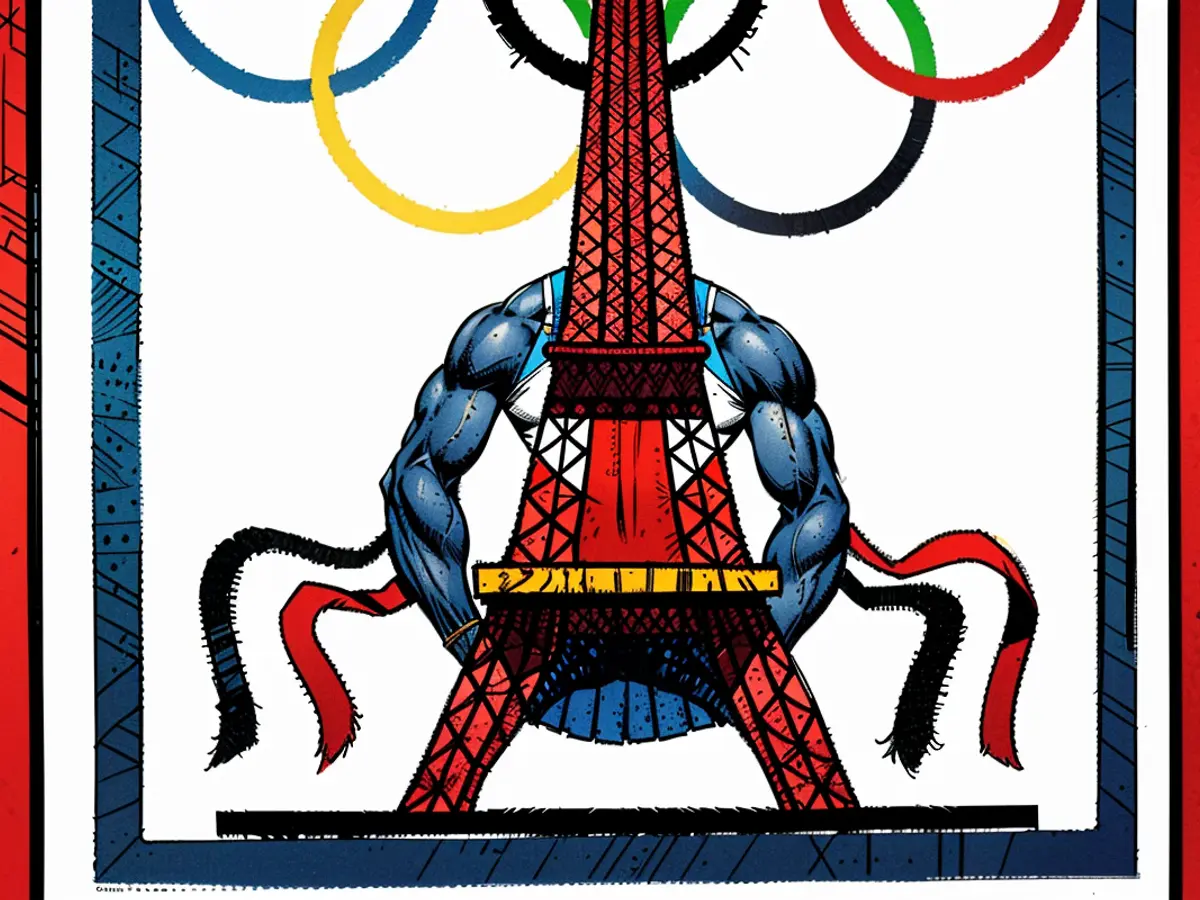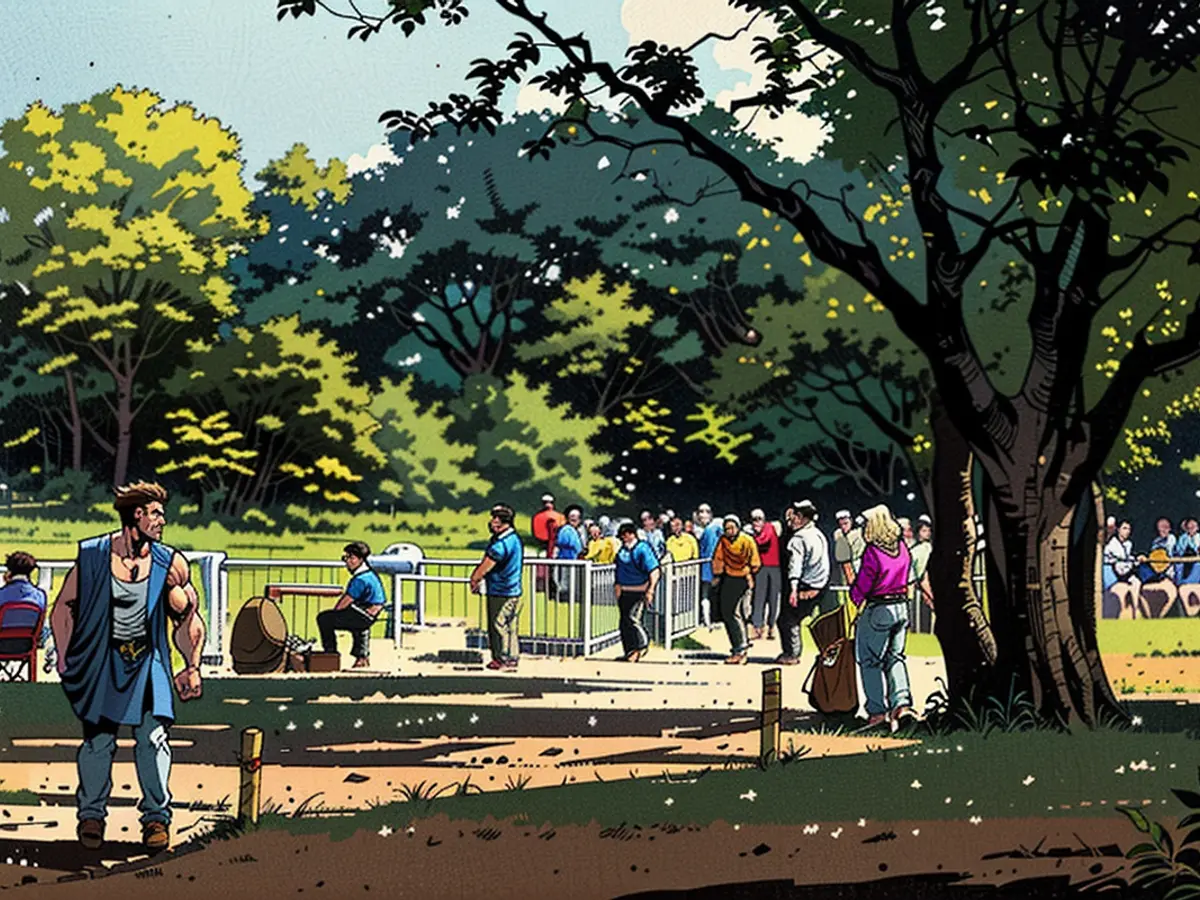Once, live pigeons were shot at Olympia
When the Olympic Games are opened in Paris on a Friday, it will be the third time that the French capital is the host city. Some prefer to avoid a close look at history, as the first edition was total chaos that lasted for months.
Pierre de Coubertin overcame his cold shivers much later. "It's a miracle that the Olympic Movement survived this spectacle", recalled the father of modern Olympics somewhat appalled about the year 1900 in his hometown Paris. That summer sports festival, which began in the spring and ended in the fall, degenerated into sheer farce. When the Olympics begin along the Seine on July 26 for the third time, the French remember it more fondly as the fabulous second edition of 1924 than the absurd premiere.
"The Games suffered from miserable organization and marketing, lasted five and a half months, and often took place at inappropriate venues", states the "Encyclopaedia Britannica" about the 1900 Games: "At athletics, hammers landed in trees, and broken telephone poles were used as hurdles." Goodness me!
Unlike the first modern Games in Athens, it was noticeable that they were conceived as a companion program to the Paris World's Fair. At the "Expo" in the flamboyant era of the turn of the century, France wanted to present itself as a modern role model, the eleven-year-old Eiffel Tower as a gigantic phallic symbol of national renewal fitting the spirit of the time. The spirit of Olympia was relegated to a supporting role.
Many athletes did not know they were at the Olympics
"International Competitions of Physical Education and Sports" were held - without opening or closing ceremonies - between May 14 and October 28, the "olympic" label was often missing. "Many athletes were not aware during their lifetime that they had participated in the Olympics", noted US historian David Wallechinsky.
Research still struggles with Paris 1900. "The number of participating athletes was somewhere between 1,220 and 13,000", wrote Bill Mallon in his "History of the Early Olympics", the IOC now recognizes 95 of the events as official.
From today's perspective, the sports program reads like a fairground program: There were Olympic champions in tug-of-war, cricket and croquet, balloon and carriage races were held. Shooting was done at - today rather hard to imagine - living pigeons. Where there were medals (long gone), the winner received a silver, the second a bronze, the third nothing. Due to the unclear time schedule, journalists and spectators remained largely away. In short: Baron de Coubertin shuddered justifiably.
100 years after the second Paris Olympics
Twenty-four years separated Paris I and Paris II, the shortest time span between two Games at the same location. De Coubertin's explicit wish was to quickly bring Olympia back - to forget the 1900 disaster and withdraw as IOC President after nearly three decades.
In the end, Paris II was groundbreaking, it was the first Olympics of truly modern making. "At the 1924 Games, many traditions were born that we know today. It was an Olympic birth", says sports historian Roxane Coche from the University of Florida.
The ceremonial of the closing party with the hoisting of the three flags - IOC, former host, upcoming host - celebrated its premiere in 1924, the Olympic motto "faster, higher, stronger" (faster, higher, stronger) came into being. The program of sports was similar to the present one. And it was the first Olympic with worldwide stars: Johnny Weissmuller, Paavo Nurmi or Uruguay's football icon Jose Leandro Andrade thrilled real audience masses. The legacy of 1924 will still be present 100 years later: In the former main venue, the Stade Olympique de Colombes, the Hockey tournaments will take place in 2024.
In the end, Baron de Coubertin erred in his concern about the Olympic future after 1900: The chaos under the Eiffel Tower was to be one of the smaller problems of the movement.
Despite the chaotic first Olympic Games in 1900, which the "Encyclopaedia Britannica" describes as a farce due to poor organization and inappropriate venues, many athletes were unaware that they had participated in the Olympics. The French prefer to remember the 1924 Games more fondly, as they witnessed the birth of many modern Olympic traditions and featured worldwide stars. The legacy of the 1924 Olympics will continue to be felt a century later, as the Hockey tournaments will be held at the Stade Olympique de Colombes in 2024 during the Olympic Games in Paris.









